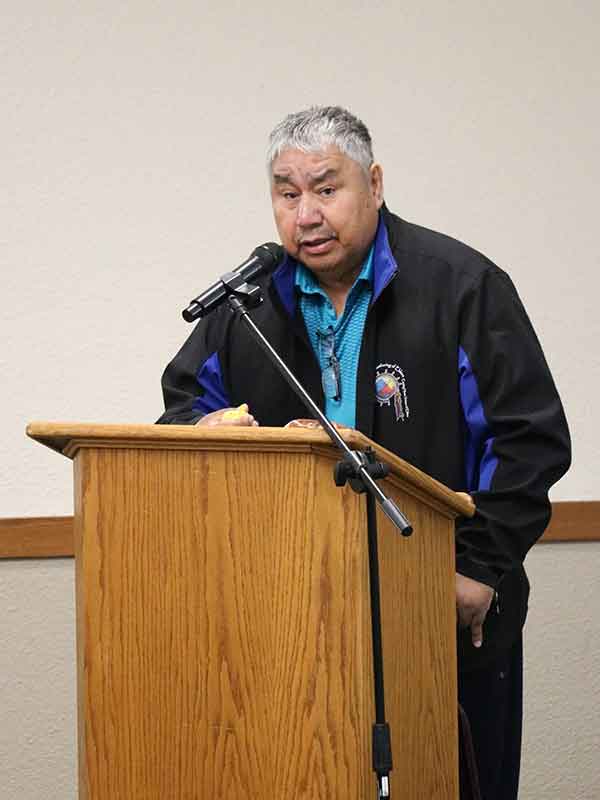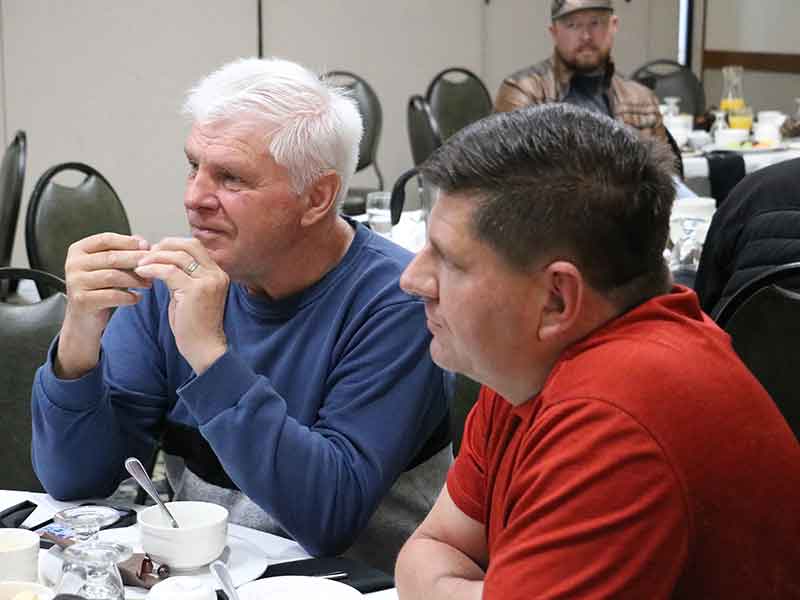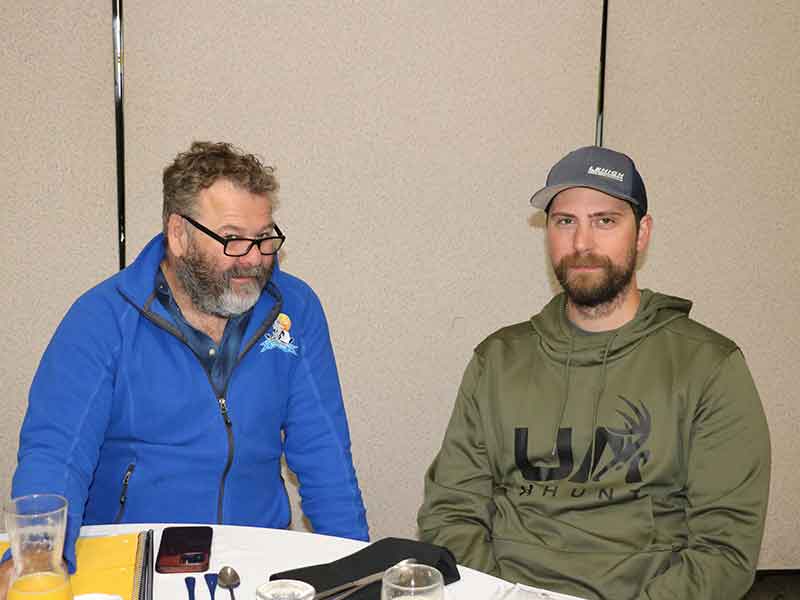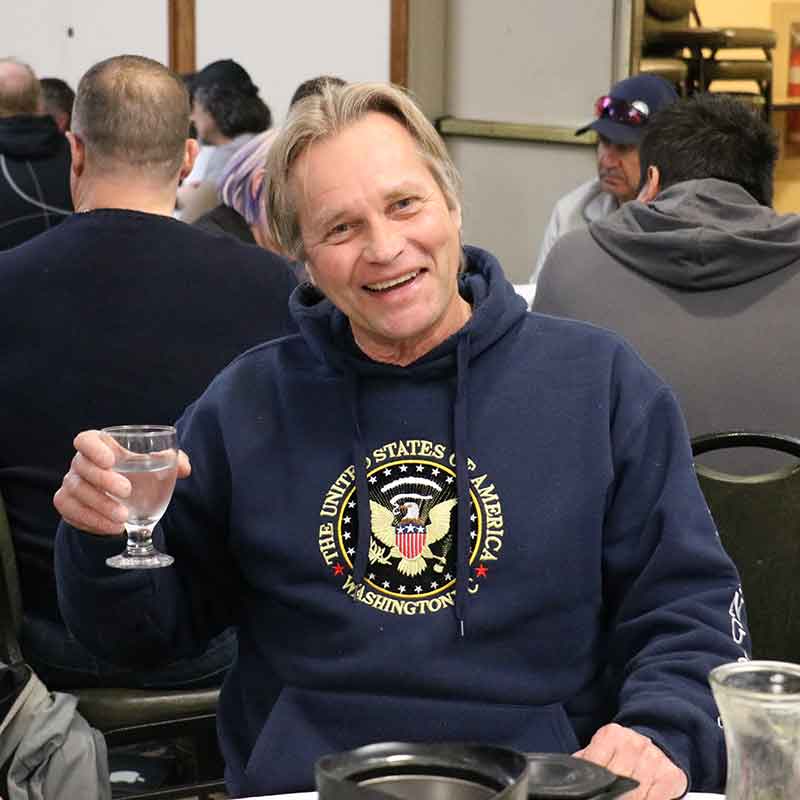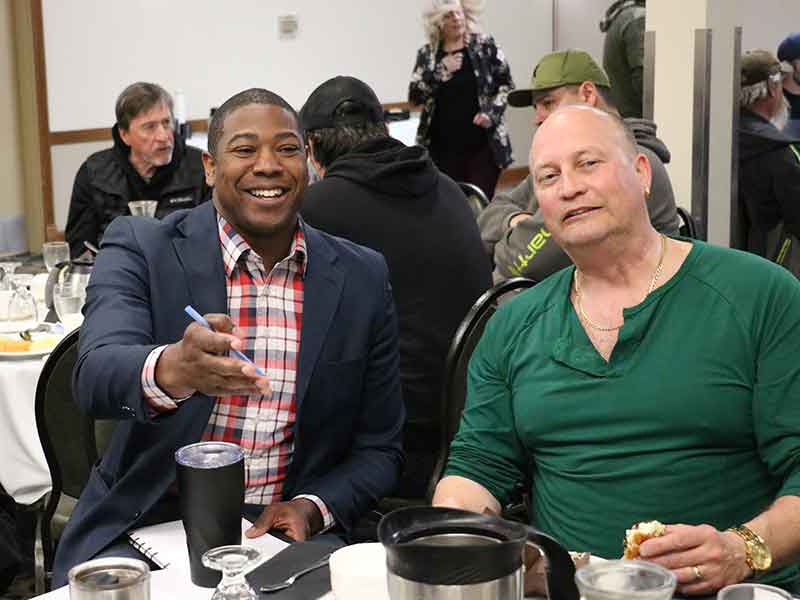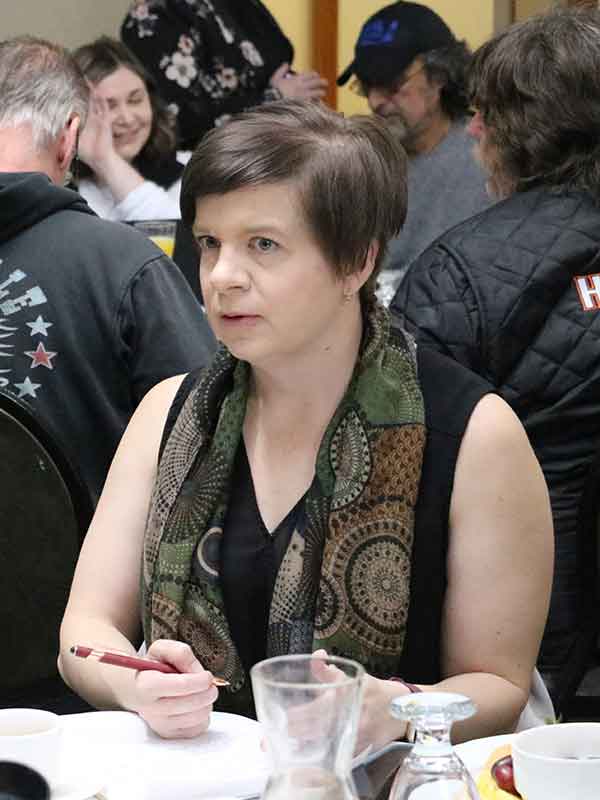Commercial Fishery Rapprochement
After a top-down approach to fisheries management by the former provincial Conservative government and a subsequent breakdown in relations with commercial fishers, the current NDP government has reached out to fishers to ask them how the relationship with government can be salvaged and how they can work as a team to manage the fishery.
The rapprochement is being led by economic development, investment and trade and natural resources minister Jamie Moses, who not only had one-on-one chats with hundreds of fishers over the course of two days, but also took his own notes.
The government held meetings on April 30 in Scanterbury and on May 1 in Gimli.
Over 100 fishers attended the Gimli meeting, which was held at the Lakeview Resort. Lake Winnipeg commercial fisher Henry Traverse from Kinonjeoshtegon (Jackhead) First Nation opened the meeting with a prayer. Departmental and other staff helped facilitate the gathering of feedback.
“Being in this role as the minister, I want to work really hard to make sure we have a strong, thriving, sustainable commercial fishing industry in this province,” said Moses after he delivered the treaty land acknowledgement. “In order for us to be able to do so, we know we need to work directly with the people who are doing the work on the frontlines – and that’s you folks. That’s why I want to be here today to hear your opinions and thoughts, and hear how we can move forward in a strong positive way.”
Moses added that the commercial fishery is “critically important” to the province’s gross domestic product, generating hundreds of millions of dollars annually, employing thousands of Manitobans and driving the economy of small communities.
Fishers were asked to provide input on major issues such as the challenges facing them, what supports the government can provide to help grow their industry, how the government can play a role in facilitating collaboration between all fishers and what the “scope and membership” of a commercial fisher advisory table might look like.
The acrimonious breakup between commercial fishers and the former Conservative government had much to do with the government’s allegedly close relationship with the Manitoba Wildlife Federation (MWF), which promotes angling and hunting interests. Commercial fishers alleged that the fisheries branch’s hiring of Rob Olson, managing director of the MWF until 2017, led to changes in government policy regarding commercial mesh size changes and the paring down of the number of commercial fishers through quota buybacks in 2019.
Last year the Manitoba Liberal party submitted a complaint to the Manitoba Ombudsman, asking it to investigate whether senior officials in agriculture and resource development had been giving “preferential treatment to the Manitoba Wildlife Federation (MWF),” states an online Liberal post from February 2023. The Liberal party said articles had been published in which the MWF boasted about having “Influential Friends” in government. The party also noted that changes in mesh sizes hurt commercial fishers and the quota buy-back program discriminated against Indigenous fishers by paying less per pound of fish.
David Olson and his son Trevor Olson of the Lake Manitoba Commercial Fishers Association attended the Gimli meeting, sharing their concerns about issues such as the danger of allowing special interest groups to influence government and commercial fishing policy, long-serving departmental staff who “have their own ideas” about how the fishery should be run and are unwilling to pivot, a lack of hatchery programs to stock lakes, and invasive species such as zebra mussels, which have been found in the Lake Manitoba Narrows region.
“Groups like the Manitoba Wildlife Federation and Fish Futures, as well as walleye and other angling clubs, have a really strong lobby. They have a big voice whereas commercial fishers in small towns are struggling to make our voices heard,” said Trevor Olson. “Unlike anglers, commercial fishers are residents. They keep our towns alive. They live there year-round, contribute to the economy and pay taxes.”
David Olson said having more fish hatcheries for Lake Manitoba could bolster stocks. There’s one fish hatchery in Lundar that serves as a central distribution centre for other lakes in the province, including Cedar Lake, and that only a certain number of fish (pickerel) are released into Lake Manitoba.
“We had all these hatchery programs going in the past, but they were killed by a former fisheries director because he didn’t like commercial fishers getting involved in [the hatchery]. Well, that’s what we do for our livelihood,” said Olson.
Lake Winnipeg commercial fisher Bill Buckels brought a list of concerns to the meeting. Those included a decline in pelagic feed in that lake, invasive species such as zebra mussels (which affect the food chain and water quality), inequities in the value of quota (e.g., south basin quota valued higher than north basin quota where there are primarily Indigenous fishers), mesh sizes, fishing season lengths and the lake being the primary dumping ground for raw sewage from Winnipeg and for agricultural chemicals in runoff.
He said the establishment of a proposed commercial fisher advisory board to facilitate dialogue between fishers and the government should have fisher representatives from across the province, follow standard administrative procedures and have a bottom-up approach in which fishers drive the boat and politicians implement the process.
Other fishers spoke about concerns with the lack of “affordability” and program funding to help entice younger fishers into the industry. They cited supports for young farmers but nothing for young fishers.
Moses’ willingness to take a diving header into commercial fishery waters wasn’t lost on fishers who said they felt ignored by the previous government. Some were buoyed about the prospect of entering into a working relationship with the new government.
“I was originally very pessimistic but after seeing how enthusiastic minister Moses is about his portfolio, I’ve got some new hope,” said Buckels.
Lake Winnipeg commercial fisher Bruce Benson said he thought the procedure whereby their concerns and ideas were recorded was “fantastic,” and he too has hope that the government will work collaboratively with his industry.
“Everybody got to have their say and you feel that the government is listening; you hope that they are and this isn’t smoke and mirrors,” said Benson. “I don’t think it is. I feel very positive about meeting like this and, hopefully, we can change the dynamic between the commercial fishers and the provincial government with this new government. We had difficulty with the former government.”
The minister’s department will be preparing a summary document based on the feedback it obtained from fishers. When the Express asked if that document will be made public, an aide to the minister said it will likely be for internal use.
Express Photos by Patricia Barrett
